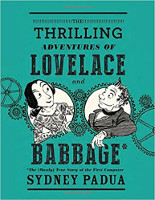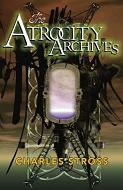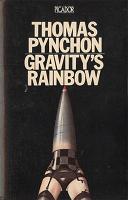 Neom is a tech wonderland for the rich and beautiful, an urban sprawl along the Red Sea; and a port of call between Earth and the stars.
Neom is a tech wonderland for the rich and beautiful, an urban sprawl along the Red Sea; and a port of call between Earth and the stars.
Now, that of course is the mammoth metropolitan area in the story, which on the one hand is set quite a bit into the future, but on the other hand in a recognisable extension of our world. In our world, our time, Neom is an airport, some building sites, and a dream in a Sheikh’s head, displayed to the world in a website and a number of promo videos. But what a dream it is!
This is Lavie Tidhar’s second novel set in his ever expanding ‘Central Station’ universe (the post-script sets out a number of short stories which also loosely connect). He is a British Science Fiction, British Fantasy, and World Fantasy Award winner, his work spans literature, SF, Fantasy, Graphic Novels as well as editing the Best of World SF anthologies.
In contrast to Central Station, the earlier novel that this is based on, Neom is much less of a Patchwork Novel. The story segments are still playing off each other, are trading topics and threads like a well-versed chamber orchestra. But the hand-overs are much smoother and much more hidden in the flow and telling of the story, though.
The unfolding story is told through the eyes and actions of 3 main protagonists (and a few lesser ones): Mariam is a flower seller, cleaner, shop assistant, and volunteer at a Sims Shelter for abandoned virtual life forms, whose salaries mainly go towards the care home for her mother.
Saleh is a young orphan who has just lost the rest of his family/tribe during an excavation for relicts from a Robotnik nest from the 2nd or 3rd war, which is also the scene of a terrorartist attack resulting in a suspended, still-ongoing explosion of a time dilation bomb (very strong reference, for me, to China Miéville’s ‘Three Moments of an Explosion’).
And the third one is a Robot, humanoid, unnamed, who fought in the wars on Earth, who fought on Mars and beyond, who used to serve humans, and who has now returned to follow some memories, and - no, that would be telling. Let’s just say he buys a rose from Mariam, lays it at the site of a spaceship crash in the desert, and then proceeds to dig up the remains of a golden robot.
There’s more, so much more here. The robot talks about ‘our cousins in the digitality’, humans talk about the Others, there’s loads of discussions and reference to philosophy, the laws of robotics, sentience, the religion of the robots. And about love.
The book provides an Appendix called ‘Beyond Neom: An A to Z’ which lists and briefly explains most of the concepts and references from the novel as well from the associated short stories.
On the one hand this feels light, like a feather, only barely touching the surface. And on the other hand it deals with heavy questions of life, love, death, and those who make an art of the latter. Sometimes the story and the world it shows feels like it’s all history and not future, like it’s all broken. Dreaming other people’s dreams.
Besides the Miéville mentioned above I picked up other references this made for me - the initial look at Neom through Mariam’s eyes, where we see the underbelly of the workers living on the fringes of the ever-young & happening city brought back memories of John Courtenay-Grimwood’s Arabesk trilogy, whilst some of the history from the back-story below/beyond the bright lights of the city have more than a whiff of Harlan Ellison’s ‘The Wine Has Been Left Open Too Long and the Memory Has Gone Flat’.
But judge for yourself - this is as grand as it is short, and I’m sure your references will be different.
More Lavie Tidhar
Thanks to the publisher for the review copy.
Title: Neom
Series: Central Station
Series Number: 2
Author: Lavie Tidhar
Reviewer: Markus
Reviewer URL: http://thierstein.net
Publisher: Tachyon Publications
Publisher URL: http://www.tachyonpublications.com
Publication Date: Nov 2022
Review Date: 221230
ISBN:9781616963835
Price: USD 9.99
Pages: 156
Format: ePub
Topic: Mid East
Topic: Robot SF














